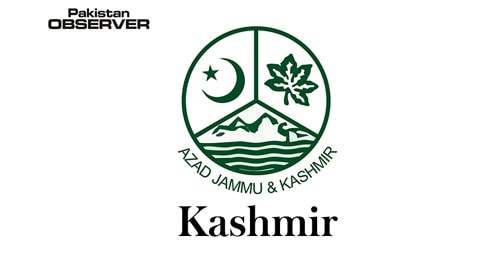Dr. Ghulam Nabi Fai
“Kashmiris are not enemies of India or hold any grudge against its inhabitants. We are desirous of a strong India and Pakistan and it is only possible when Kashmir issue is resolved to pave the way for peace, prosperity and development in the region.
” Syed Ali Geelani, veteran charismatic leader of Jammu & Kashmir “It is never too late to defend the right of self-determination and UN jurisprudence on Kashmir.”
Dr. Syed Nazir Gilani, President, JKCHR On India’s Republic Day, the people of Jammu & Kashmir extend their warm felicitation to the people of India.
It is on January 26 that India celebrates its Republic Day to honor the date on which the Indian Constitution came into force.
Kashmiris, however, voice deep regret over betrayal of Indian Government — not the people of India — of her high-minded ideals in Kashmir that marked its entry into the family of nations after long years under the British raj: shocking human rights violations, contempt for international law and binding self-determination resolutions of the United Nations Security Council.
The Kashmir question is one of the oldest unresolved international problems pending on the agenda of the Security Council.
There are certain characteristics of the situation in Kashmir, which distinguish it from all other deplorable human rights situations around the world. It prevails in what is recognized – under international law – as a disputed territory.
According to the international agreements between India and Pakistan, negotiated by the United Nations and endorsed by the Security Council, the territory’s status is to be determined by the free vote of its people under U.N. supervision.
It represents a Government’s repression not of a secessionist or separatist movement but of an uprising against foreign occupation, an occupation that was expected to end under determinations made by the United Nations.
The Kashmiris are not and cannot be called separatists because they cannot secede from a country to which they have never acceded to in the first place.
It has been met with studied unconcern by the United Nations. This has given a sense of total impunity to India.
It has also created the impression that the United Nations is invidiously selective about the application of the principles of human rights and democracy.
There is a glaring contrast between the outcry over the massacres in certain areas, on the one side, and the official silence (barring some faint murmurs of disapproval) over the killing and maiming of a vastly greater number of civilians in Kashmir and the systematic violation of the 1949 Geneva Convention.
This is not merely a case of passivity and inaction; in practical effect, it amounts to an abetment and encouragement of murderous tyranny.
If tyranny is not condoned inside the territory of a member state of the United Nations, is there not greater reason for the United Nations to intervene when the territory is one whose disposition is to be determined through a free and fair vote under the impartial auspices of the world organization.
It is a paradoxical case of the United Nations being deactivated and rendered unable to address a situation to which it had devoted a number of resolutions and in which it had established a presence, though with a limited mandate.
The United Nations Military Observers Group in India and Pakistan (UNMOGIP) is one of the oldest peacekeeping operations of the U.N.; the force is stationed in Kashmir to observe the cease-fire between India and Pakistan.
Kashmir is the only international dispute where the solution of the conflict – right to self-determination — was suggested by the parties themselves, India and Pakistan.
Mahatma Gandhi has said: “If the people of Kashmir are in favor of opting for Pakistan, no power on earth can stop them from doing so.
But they should be left free to decide for themselves.” (Gandhi’s Passion by Professor Stanley Wolpert, Page 247).
Kashmir is the only region which shares its borders with three nuclear powers of the world – India, Pakistan & China.
The potential of nuclear war has always been there between India and Pakistan, now because of the Chinese element that potential is now real.
The uncertainty over Kashmir will lead not only India and Pakistan to disaster but it will also destroy any possibility of bringing peace and stability to Afghanistan.
All these peculiarities of the Kashmir situation become more baffling in view of the fact that the mediatory initiative which would halt the violations of human rights and set the stage for a solution would entail no deployment of United Nations forces, no financial outlays and no adversarial relations with India.
In this context, the following considerations are most pertinent for an assessment of the dispute by the world powers.
When the Kashmir dispute erupted in 1947-1948, the United States, Great Britain, China, France, Canada, Argentina, Belgium, Columbia, championed the stand that the future status of Kashmir must be ascertained in accordance with the wishes and aspirations of the people of the territory.
The U.S. was a principal sponsor of the resolution # 47 which was adopted by Security Council on 21 April 1948 and which was based on that unchallenged principle. —KMS










